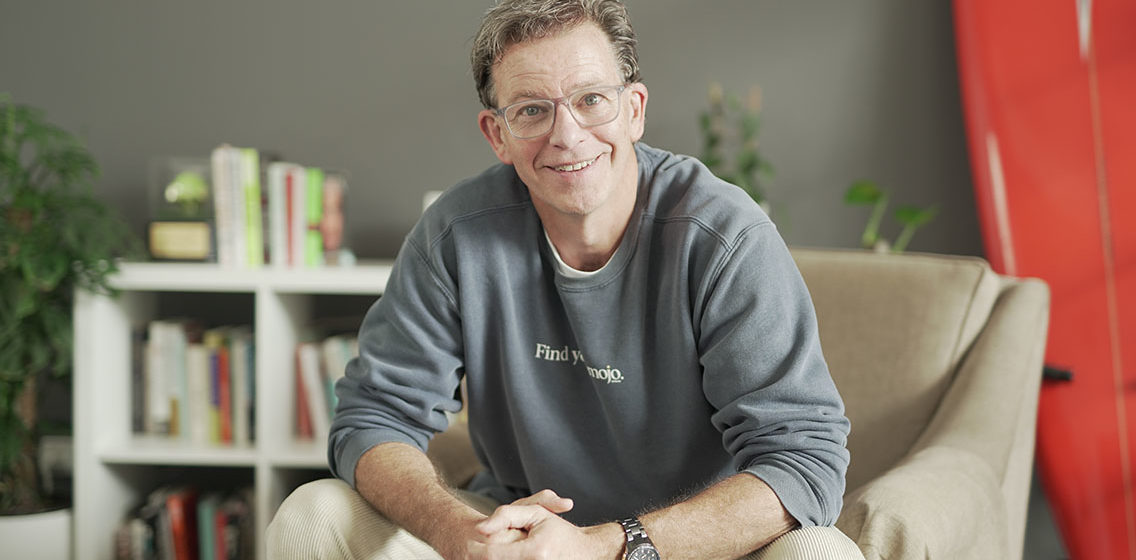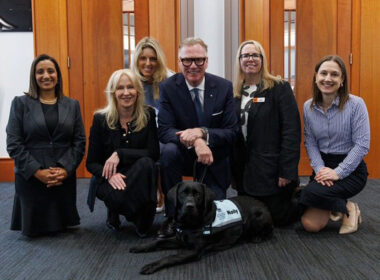He’s the mindset coach Ash Barty praises for helping her become the world’s number one tennis player. And it only took six minutes to understand why Ben Crowe is one of the most inspiring speakers of our time.
Crowe has worked with some of the world’s most famous movers and shakers, from surfing legend Stephanie Gilmore to leaders at Macquarie Bank. His goal: to change the narrative around achieving success, confidence and happiness. Crowe shares his advice for professionals in, what he calls, a distracted world desperate for authenticity and vulnerability.
Mindset coaching has clearly helped Ash Barty on her journey to becoming best in the world. What lessons are also applicable to the legal profession?
The main thing from Ash Barty’s journey, and something that lawyers or any industry can learn, is separating your self-worth from what you do. Ash doesn’t define herself as an athlete. That’s what she does, but it’s not who she is. Lawyers shouldn’t base their self-worth on whether they win or lose a case, where they sit in a firm or how much money they make. Separating the person from the persona, the human being from the human doing, or the self-worth from the business card. That’s something many people struggle with in terms of their identity.
Another principle that has been successful for Ash is accepting the things she cannot control and focusing on the things she can. We need to identify our flavour of distraction. It might be ego or identity, a competitor, or focusing on results rather than the process. We are so distracted today as a human race, focusing on all these things we can’t control but wanting to control them. That is the definition of anxiety and stress.
How do you define success?
In terms of Ash Barty the human being, it’s not whether she wins Wimbledon or not. It’s knowing and believing she is worthy of winning Wimbledon – that is success. Success is not finding the dream job or relationship. It’s knowing you are worthy of those things. Your self-worth is unconditional but if it becomes conditional upon outcome and results, it’s going to be a rollercoaster of emotions.
We should all have big goals and dreams. But we need to replace those unrealistic imaginary expectations with acceptance of self and the things we can’t control. As a human race, we suck at acceptance.
As a human race, we suck at acceptance.
What is your biggest piece of advice for the legal profession?
We don’t know ourselves enough as human beings. We need to do the work, have the courage to lean in and make sense of our life story and work out what our values are. If you don’t do that, you start looking external and we get distracted by extrinsic motivations. I call them the “big 5 distractions”:
1. Money; “once I make that money, then I’ll be enough”
2. Materialism; “once I get that car, that house, that handbag, then I’ll be enough”
3. Corporate status; “once I become a Partner or a QC then I’ll be enough”
4. Social status; “once I’m famous, once I’m recognised socially, then I’ll be enough”
5. Extrinsic motivation; “obsessing and caring what people think about me and say about me”
If we get the balance right, it doesn’t guarantee we will win in life, love or in grand slams. But what it does guarantee, is we will bring the best version of ourselves to the dance floor.
What commonalities do you see in successful people you’ve worked with?
Dialling up the principles of humility and curiosity have enabled people to transform their lives. Your greatest growth comes from your darkest times and these two principles turn adversity into possibility. The amazing vulnerability and courage to say “okay I can’t do this on my own, I need help” is life changing for people. We’ve interviewed some of the people I’ve worked with like Ash, Steph Gilmore and Dylan Alcott and put it on our Mindset app. It’s available for the whole world.




